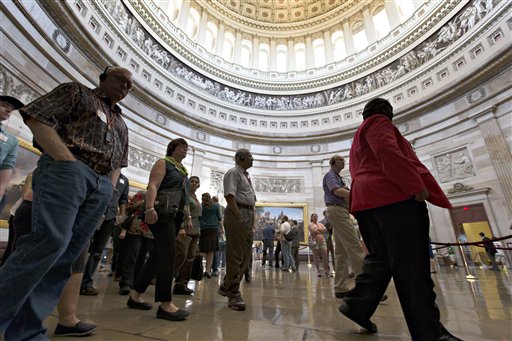Blame game rife as Dems, GOP try to avert shutdown

Budget Battle_Lieb (1).jpg
Republicans and Democrats blamed each other Monday as they took the federal government to the brink of a shutdown in an intractable budget dispute over President Barack Obama’s signature health care law.
House Republicans excoriated Senate Democrats for taking the weekend off and resisting a House measure that would avert a shutdown, though with conditions: delaying further implementation of the health care law for a year and eliminating a tax on medical devices.
“The Senate decided not to work yesterday,” Speaker John Boehner, R-Ohio, said shortly after the House began its session — and just hours before a threatened shutdown at midnight. “Well my goodness, if there’s such an emergency, where are they?”